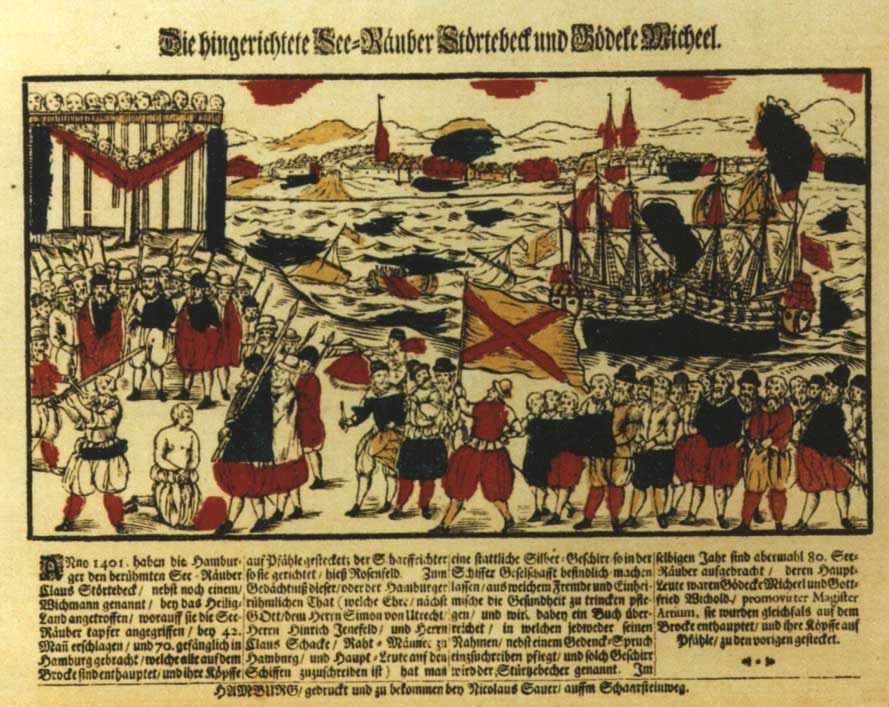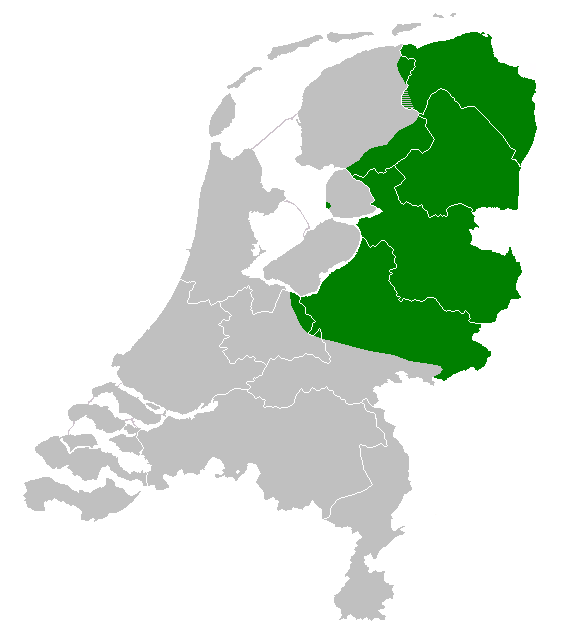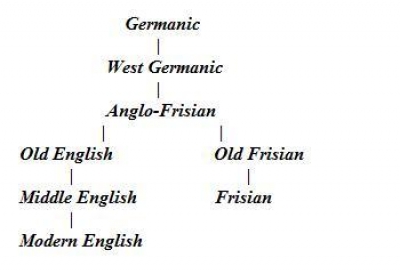|
Saterland Frisians
The Saterland Frisians (german: Saterfriesen, stq, Seelterfräisen) are one of the smallest language groups in Europe. They belong to the eastern branch of the Frisian people and are thus a recognised minority within Germany. They live in the Saterland (Saterland Frisian: ''Seelterlound''), a community in the northern part of Cloppenburg district (Lower Saxony). History The Saterland Frisians came from East Frisia, but around 1200 they left their old homeland after several major storm tides and settled the present-day Saterland. There they superimposed themselves on the indigenous, but thinly spread Westphalian-Saxons and assimilated them. The fact that they are clearly counted as Frisians is evinced by a document dated May 1400: together with the other East Frisian estates and rural communities, they signed an agreement with representatives of the Hanseatic League that they would no longer afford any more assistance to the Victual Brothers, a band of pirates active in the Nor ... [...More Info...] [...Related Items...] OR: [Wikipedia] [Google] [Baidu] |
Saterland Frisian Language
Saterland Frisian, also known as Sater Frisian, Saterfrisian or Saterlandic (), is the last living dialect of the East Frisian language. It is closely related to the other Frisian languages: North Frisian, spoken in Germany as well, and West Frisian, spoken in the Dutch province of Friesland. Classification From a diachronical perspective, Saterland Frisian is an ''Emsfrisian'' dialect of the East Frisian language. Emsfrisian used to be spoken in the western half of the East Frisian peninsula and in the Ommelanden. The other East Frisian dialect group was the ''Weserfrisian'', formerly spoken from the eastern half of the East Frisian peninsula to beyond the Weser. Synchronically speaking, Saterland Frisian is a language. Together with West Frisian and North Frisian it belongs to Frisian branch of the Germanic languaes. The three Frisian languaes evolved from Old Frisian. Upon the living Frisian dialects, the one spoken in Heligoland (called Halunder) is the closest to Saterla ... [...More Info...] [...Related Items...] OR: [Wikipedia] [Google] [Baidu] |
Victual Brothers
, native_name_lang = , named_after = french: vitailleurs (provisioners, Hundred Years' War) , image = Vitalienbrueder, Wandmalerei in d, Kirche zu Bunge auf Gotland, gemalt ca. 1405.JPG , image_size = 250px , alt = , caption = A contemporary representation of the ''Vitalienbrüder'' on a wall painting, Bunge church, Gotland, Sweden, , logo = , logo_size = , logo_alt = , logo_caption = , map = , map_size = , map_alt = , map_caption = , map2 = , map2_size = , map2_alt = , map2_caption = , abbreviation = , motto = , predecessor = , merged = , successor = , formation = ca. 1393 , founder = , founding_location = , dissolved = ca. 1440 , merger = , ... [...More Info...] [...Related Items...] OR: [Wikipedia] [Google] [Baidu] |
East Frisians
East Frisians (german: Ostfriesen, stq, Aastefräisen) are, in the wider sense, the inhabitants of East Frisia in the northwest of the German state of Lower Saxony. In the narrower sense the East Frisians are the eastern branch of the Frisians, a distinct Germanic ethnic group, and are one of the nationally recognized ethnic minorities in Germany, along with the Danes, Sorbs, Sinti and Romanies. They are closely related to the Saterland Frisians, who come from East Frisia and moved from the coastal region to the interior. The East Frisians are also related to the North Frisians and the Westlauwers Frisians. Sometimes all Frisians from the eastern Frisian regions (East Frisians, Saterland Frisians, Oldenburg Frisians, Rüstringen Frisians, Wurtfrisians) are referred to as East Frisians, because all these Frisians form the eastern branch of the Frisians. In the eastern Frisian regions, in contrast to North and West Frisia, the Frisian language was gradually replaced by Low Sax ... [...More Info...] [...Related Items...] OR: [Wikipedia] [Google] [Baidu] |
University Of Göttingen
The University of Göttingen, officially the Georg August University of Göttingen, (german: Georg-August-Universität Göttingen, known informally as Georgia Augusta) is a public research university in the city of Göttingen, Germany. Founded in 1734 by George II, King of Great Britain and Elector of Hanover, and starting classes in 1737, the Georgia Augusta was conceived to promote the ideals of the Enlightenment. It is the oldest university in the state of Lower Saxony and the largest in student enrollment, which stands at around 31,600. Home to many noted figures, it represents one of Germany's historic and traditional institutions. According to an official exhibition held by the University of Göttingen in 2002, 44 Nobel Prize winners had been affiliated with the University of Göttingen as alumni, faculty members or researchers by that year alone. The University of Göttingen was previously supported by the German Universities Excellence Initiative, holds memberships ... [...More Info...] [...Related Items...] OR: [Wikipedia] [Google] [Baidu] |
West Low German
Low Saxon, also known as West Low German ( nds, Nedersassisch, Nedersaksies; nl, Nedersaksisch) are a group of Low German dialects spoken in parts of the Netherlands, northwestern Germany and southern Denmark (in North Schleswig by parts of the German-speaking minority). It is one of two groups of mutually intelligible dialects, the other being East Low German dialects. A 2005 study found that there were approximately 1.8 million "daily speakers" of Low Saxon in the Netherlands. 53% spoke Low Saxon or Low Saxon and Dutch at home and 71% could speak it. loemhoff, H. (2005). Taaltelling Nedersaksisch. Een enquête naar het gebruik en de beheersing van het Nedersaksisch in Nederland. Groningen: Sasland./ref> According to another study the percentage of speakers among parents dropped from 34% in 1995 to 15% in 2011. The percentage of speakers among their children dropped from 8% to 2% in the same period. Extent The language area comprises the North German states of Lower Saxony, N ... [...More Info...] [...Related Items...] OR: [Wikipedia] [Google] [Baidu] |
Frisian Languages
The Frisian (, ) languages are a closely related group of West Germanic languages, spoken by about 500,000 Frisian people, who live on the southern fringes of the North Sea in the Netherlands and Germany. The Frisian languages are the closest living language group to the Anglic languages; the two groups make up the Anglo-Frisian languages group and together with the Low German dialects these form the North Sea Germanic languages. However, modern English and Frisian are not mutually intelligible, nor are Frisian languages intelligible among themselves, owing to independent linguistic innovations and foreign influences. There are three different Frisian branches, which are usually called the Frisian languages, despite the fact that their so-called dialects are often not mutually intelligible even within these branches. These branches are: West Frisian, which is by far the most spoken of the three and is an official language in the Dutch province of Friesland, where it is spoken ... [...More Info...] [...Related Items...] OR: [Wikipedia] [Google] [Baidu] |
Diocese Of Münster
In church governance, a diocese or bishopric is the ecclesiastical district under the jurisdiction of a bishop. History In the later organization of the Roman Empire, the increasingly subdivided provinces were administratively associated in a larger unit, the diocese (Latin ''dioecesis'', from the Greek term διοίκησις, meaning "administration"). Christianity was given legal status in 313 with the Edict of Milan. Churches began to organize themselves into dioceses based on the civil dioceses, not on the larger regional imperial districts. These dioceses were often smaller than the provinces. Christianity was declared the Empire's official religion by Theodosius I in 380. Constantine I in 318 gave litigants the right to have court cases transferred from the civil courts to the bishops. This situation must have hardly survived Julian, 361–363. Episcopal courts are not heard of again in the East until 398 and in the West in 408. The quality of these courts was l ... [...More Info...] [...Related Items...] OR: [Wikipedia] [Google] [Baidu] |
Peace Of Westphalia
The Peace of Westphalia (german: Westfälischer Friede, ) is the collective name for two peace treaties signed in October 1648 in the Westphalian cities of Osnabrück and Münster. They ended the Thirty Years' War (1618–1648) and brought peace to the Holy Roman Empire, closing a calamitous period of European history that killed approximately eight million people. Holy Roman Emperor Ferdinand III, the kingdoms of France and Sweden, and their respective allies among the princes of the Holy Roman Empire participated in these treaties.Clodfelter, Micheal (2017). ''Warfare and Armed Conflicts: A Statistical Encyclopedia of Casualty and Other Figures, 1492–2015.'' McFarland. p. 40. . The negotiation process was lengthy and complex. Talks took place in two cities, because each side wanted to meet on territory under its own control. A total of 109 delegations arrived to represent the belligerent states, but not all delegations were present at the same time. Two treaties were signe ... [...More Info...] [...Related Items...] OR: [Wikipedia] [Google] [Baidu] |
Protestantism
Protestantism is a branch of Christianity that follows the theological tenets of the Protestant Reformation, a movement that began seeking to reform the Catholic Church from within in the 16th century against what its followers perceived to be growing errors, abuses, and discrepancies within it. Protestantism emphasizes the Christian believer's justification by God in faith alone (') rather than by a combination of faith with good works as in Catholicism; the teaching that salvation comes by divine grace or "unmerited favor" only ('); the priesthood of all faithful believers in the Church; and the ''sola scriptura'' ("scripture alone") that posits the Bible as the sole infallible source of authority for Christian faith and practice. Most Protestants, with the exception of Anglo-Papalism, reject the Catholic doctrine of papal supremacy, but disagree among themselves regarding the number of sacraments, the real presence of Christ in the Eucharist, and matters of ecclesiast ... [...More Info...] [...Related Items...] OR: [Wikipedia] [Google] [Baidu] |








